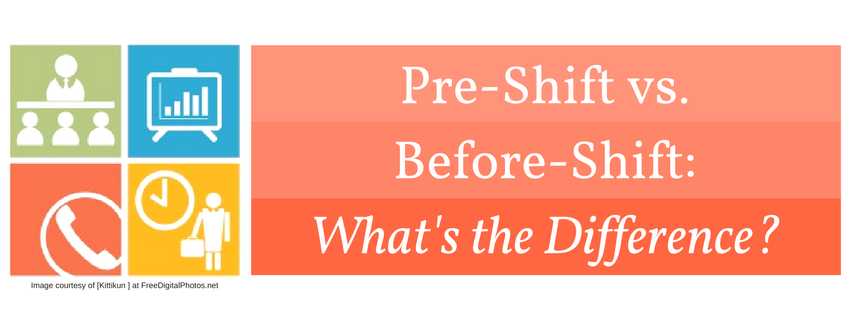After reviewing some information that was sent to us from HR Pilot, we thought it would be useful to other companies that have questions regarding on whether an employee should be compensated or not.
Employers are using pre-shift meetings as an effective tool to increase communication in the workplace, but it is important to know the difference between “Pre-shift” and “Before-shift” duties when considering work-time. Any time the employee is “suffered or permitted” to work is considered time that must be compensated by the employer, even if it is a “quick” meeting, and even if the employee is not clocked in.
Examples of other duties that can be done “Pre-shift” and must be compensated include:
- Reading, giving, or getting instructions to perform a duty;
- Logging into a software system;
- Attending “roll-call” or reviewing daily duties with a manager;
- Donning protective gear;
- Completing pre-shift inspections; and
- Gathering necessary supplies for work.
Examples of the employee’s duties that might be permissible “before-shift” (this includes any activity that is not considered a benefit to the employer), such as:*
- Parking a car;
- Resting in the break room or using the bathroom before a shift;
- Putting a meal in the refrigerator or hanging up a coat; and
- Making a call to plan how to get home from work.
* Always consult with your EPLI HR Professionals if there are any questions as to Pre-shift duties.
If you have questions regarding this or any other policy, contact your HR representative today. If you don’t currently work with a company, feel free to reach out to us for referrals to someone who can assist you.
